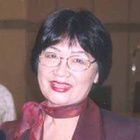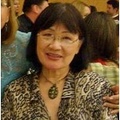La cultura ancestral impregnada en el alma del pueblo japonés ha formado un ethos distintivo, en el que las virtudes y los defectos han sido separados cuidadosamente por categorías tal vez de difícil comprensión en el mundo occidental. Esto se puede observar, por ejemplo, en la ceremonia del té o chanoyu, creada en el siglo XVI por el monje Sen no Rikyu de la secta del Budismo Zen.
El le dio forma y sentido filosófico al acto de tomar el té como una ceremonia ritual; el objetivo al que se quiere llegar con esta práctica es el sentir en lo íntimo del ser la refinada pobreza.
Para la mayoría de los occidentales el concepto de “Refinada pobreza” es algo que escapa a la lógica en el desarrollo normal de una vida. ¿De qué manera el refinamiento se puede aplicar a la pobreza para que ésta sea apreciada como una virtud del comportamiento humano? Es importante analizar esta frase siguiente que conlleva mil connotaciones: “esteticismo de austera simplicidad.”
En una ceremonia previa del chanoyu se debe apreciar la humildad como el fundamento necesario para la iniciación ritual. Para tal efecto se realiza una serie de pasos como la purificación de las manos con el agua limpia, agachar la cabeza e inclinarse para ingresar en el recinto de la ceremonia por una entrada pequeña y angosta. Todo ello como un signo de humildad y pobreza.
La austeridad, la simplicidad, la naturalidad son términos que se aplican diariamente y en toda la esfera de la cultura japonesa, desde la antigüedad hasta la época reciente. Esto se observa sobre todo entre los inmigrantes japoneses llegados a América antes de la Segunda Guerra Mundial y aun entre los que llegaron después, y ellos transmitieron este modo característico de los japoneses a sus descendientes. De ahí provienen la sobriedad, la discreción o el enryo que se expresan en la vida como signos de modestia. Esta discreción que es el fundamento de la vida y característica del pueblo japonés se ha venido practicando a través de milenios. Como herencia cultural se ha arraigado firmemente en el alma de los japoneses, inclusive entre los descendientes de los japoneses que son los nikkei. Esta forma de comportamiento ha contribuido a evitar roces en las relaciones humanas, difíciles o no, para mantener la armonía del conjunto.
Para muchos occidentales esta manera de conducirse en la vida sería expresión de cierta timidez o de temor por competir con otras nacionalidades, en especial cuando se trata de conducirse en cargos o puestos de relevancia. La osadía, imposición y maniobra hábil con las que se suele actuar en esas posiciones no se observan entre los nikkei. Sin embargo, se observa también entre ellos que una vez asumido un puesto de tal categoría empiezan a mostrar actitudes como la laboriosidad, la disciplina y la precisión que son altamente valoradas.
El enryo o discreción que prevalece entre los japoneses y nikkei como un signo distintivo, es considerada una virtud por los japoneses. Además, esa actitud que no es comprendida ni apreciada entre los occidentales sigue anidando en el alma de los descendientes; lo que para la cultura japonesa es un comportamiento correcto, para otros pareciera ser un signo de debilidad.
Para un japonés común no es fácil abrirse paso en las ciudades occidentales y en especial del continente americano, en donde existe una hibridación de culturas y un predominio de la cultura europea. Tal dificultad se debe esencialmente a que la actitud discreta del japonés e interés por no causar molestias a los demás no calza en un mundo donde el individualismo está fuertemente arraigado desde sus raíces, desde la conquista europea y el inicio del dominio de ella sobre los otros.
Para paliar esa situación de incomprensión cultural sería importante para un nikkei que la hibridación se diera con un 50 % de cada cultura (la occidental y la oriental), analizando y seleccionando cuidadosamente las virtudes y estudiando a fondo las debilidades humanas, justamente para superar los obstáculos y buscar el correcto camino a seguir dentro de ese mundo.
© 2009 Emi Kasamatsu





